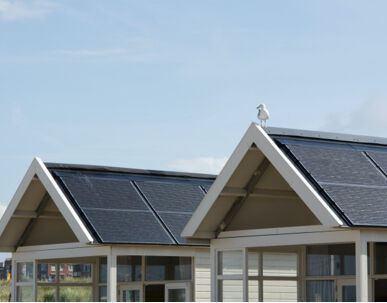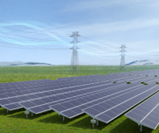
With relation to energy consumption and sustainability, South Africa is at a turning point. Growing industry and population increase are driving up the electricity demand. To address power supply and demand issues, energy storage technologies have grown in popularity in recent years. This detailed assessment digs into every aspect of South Africa's expanding area of energy storage technologies, providing insights into the issues encountered by current infrastructure and the potential benefits of adopting cutting-edge storage systems. The research promises to show how implementing these technologies can address present power supply and demand imbalances and pave the road for South Africa's sustainable and resilient energy future.

The Energy Landscape in South Africa
Understanding the energy production scenario in South Africa is essential to understanding the growth of energy storage technologies. Coal is the country's primary energy source. However, studies have shown that this is not sustainable in terms of either money or the environment. Though they may require assistance, renewable energy sources—particularly wind and solar power—are growing in popularity. In high production, energy storage devices provide a useful means of storing excess energy for later release in times of high demand.
The Role of Renewable Energy
South Africa's quest for a more sustainable energy future has been revolutionized by renewable energy, particularly solar and wind power. The nation is well-suited for generating sustainable energy because of its plentiful solar and wind resources. The fact that these sources are sporadic is a big obstacle, nonetheless. Energy storage technologies, including cutting-edge battery systems, offer a means of storing excess energy produced during peak hours, guaranteeing a steady and dependable power supply even without wind or sunlight.

Grid Stability and Reliability
Energy storage technologies provide several benefits, including enhancing system stability and reliability. Customers in South Africa, both residential and commercial, have been negatively impacted by power outages and unstable grids. Energy storage devices serve as a buffer by releasing stored extra energy during peak hours or in the case of an unexpected increase in demand. This improves the grid's reliability while reducing the need for expensive infrastructure investments.
Economic Advantages and Job Creation
Energy storage systems are growing in popularity in South Africa due to significant cost savings and their benefits for the environment and the grid. As the country shifts to greener and more sustainable energy practices, there is a growing industry for designing, manufacturing and installing energy storage systems. Apart from creating job opportunities, this also positions South Africa as a hub for innovation and technical progress in the renewable energy sector. The economy becomes more resilient and stable when less dependent on imported fossil fuels.

Government Initiatives and Policies
Energy storage technologies are crucial to the South African government's efforts to meet its sustainability and energy targets. Several programs and laws have been implemented to encourage storage and renewable energy technology use. This involves cooperation with the business sector, regulatory frameworks, and financial incentives to hasten the adoption of energy storage systems. To create an atmosphere that is favourable for investment and innovation in the energy storage industry, government assistance is essential.
Conclusion
The emergence of energy storage south africa heralds a paradigm shift in the nation's energy sector. Modern storage technologies and sustainable energy sources offer a stable solution to the ever-increasing need for electricity. An essential component of South Africa's transition to a cleaner, more resilient energy future is energy storage, which may be used to solve the problems associated with intermittent renewable energy sources as well as improve grid stability and generate jobs. As long as the government continues to support them and technology advancements continue, energy storage technologies' role in shaping South Africa's energy narrative is anticipated to be significant for many years.
